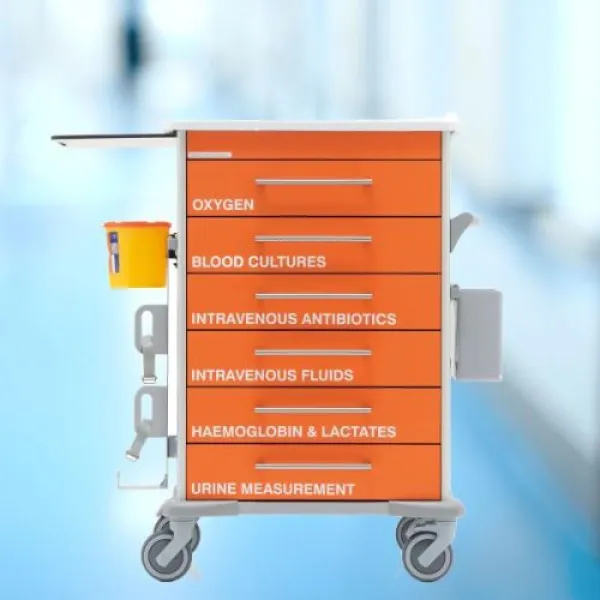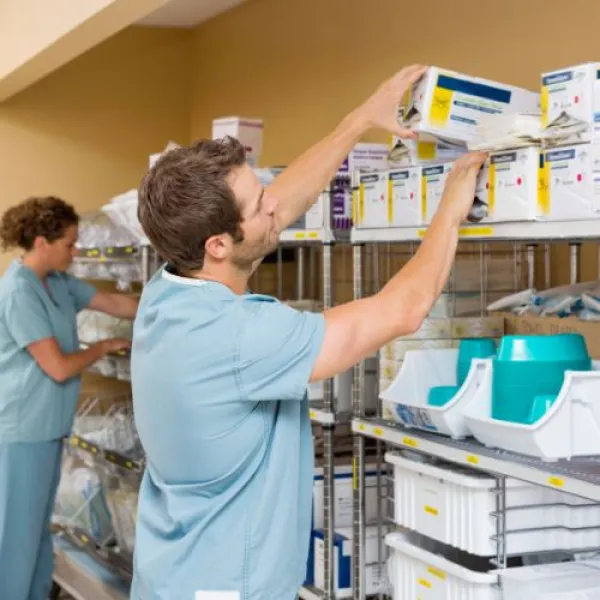RFID smart cabinets
Benefits
RFID smart cabinets
We have teamed up with leading healthcare storage experts Medstor to provide an RFID-based solution which automatically tracks surgical implants from receipt to storage and right up to the point of being implanted into the patient.
The solutions uses a combination of smart cabinets and handheld readers to record the movements of implants in real time to protect valuable implants from losses, minimize waste by providing visibility of expiration dates and avoid medical errors by highlighting if a wrong implant was selected for a patient.
The solution uses smart cabinets and handheld readers to accurately track implants, ensuring that recalls are efficient while also preventing medical errors such as use of the wrong implant.
Picking the correct items for an operation is simpler and quicker as an RFID home-in function on the handheld reader can lead the user straight to a specific item. Stock is also monitored automatically which saves time on manual stock checking.
Effective management of use-by dates results in less waste and significant cost savings.
Where item stock levels go below specified thresholds, the system can automatically trigger a re-order to ensure there are always sufficient supplies available when needed.
Items removed from the cabinet are automatically removed from stock in the system and any returned or newly ordered items are automatically added, so there is full real-time visibility of available stock.
Why use RFID smart cabinets?
To ensure patient safety and enable fast and efficient product recalls, GS1 stipulates that each surgical implant like all other medical devices should be identifiable by batch number and even uniquely by serial number.
The United States Food and Drug Administration (FDA), the European Commission and other regulators have developed legislation for Unique Device Identification (UDI), and are aiming for a globally harmonized and consistent approach aligned on the U.S. IMDRF Guidelines.
Adding RFID technology to the use of barcodes or numerical information enables healthcare providers to carry out Automatic Identification and Data Capture (AIDC) to improve patient safety, safe time and cut costs.
How do smart cabinets work?

Tagging assets
To identify each item, the packaging of the high value asset is fitted with an RFID label which is then registered against the hospital database with its type, size and unique device identifier number (UDI).

Smart cabinets
Smart cabinets are designed to only open for staff wearing a registered RFID badge. Once items have been removed, on closing, the cabinet does a ‘stock check’ and registers the removed items against the unique staff badge number. If items have been removed and then don’t appear as having been used, the system flags up this event to highlight that they might have been mislaid or stolen. This also makes this solution ideal for controlled drug management.

Handheld readers
Handheld readers are used to register items on the database on delivery, pick the correct items in preparation for an operation like in a Theatre Kitting solution and register the implant against the patient by scanning the patient wristband and then the implant device just before or during the procedure.



